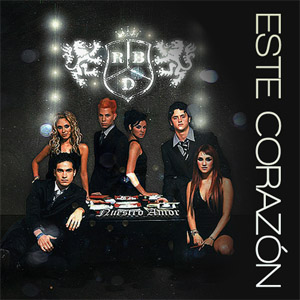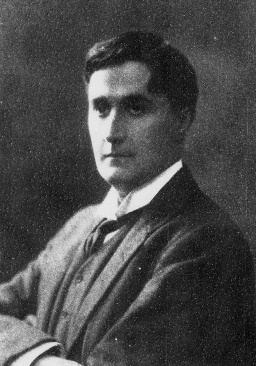Related Research Articles

"My Country, 'Tis of Thee", also known as simply "America", is an American patriotic song, the lyrics of which were written by Samuel Francis Smith. The song served as one of the de facto national anthems of the United States before the adoption of "The Star-Spangled Banner" as the official U.S. national anthem in 1931. The melody used is adopted from the national anthem of the United Kingdom, "God Save the King".

A refrain is the line or lines that are repeated in music or in poetry—the "chorus" of a song. Poetic fixed forms that feature refrains include the villanelle, the virelay, and the sestina.

"Heart-Shaped Box" is a song by the American grunge band Nirvana, written by vocalist and guitarist Kurt Cobain. It appears as the third track on the band's third and final studio album, In Utero, released by DGC Records in September 1993. It was one of two songs on In Utero remixed by Scott Litt prior to the album's release, due to the band's dissatisfaction with the original mixing by producer Steve Albini. The Litt remix also featured additional vocal harmonies and guitar by Cobain, which were the only elements on the album's 12 main tracks not recorded during the original sessions with Albini in February 1993.

The 32-bar form, also known as the AABA song form, American popular song form and the ballad form, is a song structure commonly found in Tin Pan Alley songs and other American popular music, especially in the first half of the 20th century.
Song structure is the arrangement of a song, and is a part of the songwriting process. It is typically sectional, which uses repeating forms in songs. Common piece-level musical forms for vocal music include bar form, 32-bar form, verse–chorus form, ternary form, strophic form, and the 12-bar blues. Popular music songs traditionally use the same music for each verse or stanza of lyrics. Pop and traditional forms can be used even with songs that have structural differences in melodies. The most common format in modern popular music is introduction (intro), verse, pre-chorus, chorus, verse, pre-chorus, chorus, bridge, and chorus, with an optional outro. In rock music styles, notably heavy metal music, there is usually one or more guitar solos in the song, often found after the middle chorus part. In pop music, there may be a guitar solo, or a solo performed with another instrument such as a synthesizer or a saxophone.
Verse–chorus form is a musical form going back to the 1840s, in such songs as "Oh! Susanna", "The Daring Young Man on the Flying Trapeze", and many others. It became passé in the early 1900s, with advent of the AABA form in the Tin Pan Alley days. It became commonly used in blues and rock and roll in the 1950s, and predominant in rock music since the 1960s. In contrast to 32-bar form, which is focused on the refrain, in verse–chorus form the chorus is highlighted.

"On the Banks of the Wabash, Far Away" is a song written and composed by the American songwriter Paul Dresser in 1897. It is among the best-selling songs of the 19th century, earning over $100,000 from sheet-music revenues. Written and composed by American songwriter Paul Dresser, it was published by the Tin Pan Alley firm of Howley, Haviland and Company in October 1897. The lyrics of the ballad reminisce about life near Dresser's childhood home by the Wabash River in Indiana, United States. The song remained popular for decades, and the Indiana General Assembly adopted it as the official state song on March 14, 1913. The song was the basis for a 1923 film of the same title. Its longtime popularity led to the emergence of several lyrical versions, including an 1898 anti-war song and a Swedish version that was a number-one hit.
"The Water Is Wide" is a folk song of British origin. It remains popular in the 21st century. Cecil Sharp published the song in Folk Songs From Somerset (1906).

"Dixie", also known as "Dixie's Land", "I Wish I Was in Dixie", and other titles, is a song about the Southern United States first made in 1859. It is one of the most distinctively Southern musical products of the 19th century. It was not a folk song at its creation, but it has since entered the American folk vernacular. The song likely rooted the word "Dixie" in the American vocabulary as a nickname for the Southern U.S.
"Sussex by the Sea" is a song written in 1907 by William Ward-Higgs, often considered to be the unofficial county anthem of Sussex. It became well known throughout Sussex and is regularly sung at celebrations throughout the county. It can be heard during many sporting events in the county, during the Sussex bonfire celebrations and it is played by marching bands and Morris dancers across Sussex. It is the adopted song of Brighton & Hove Albion Football Club, Sussex Division Royal Naval Reserve, Sussex Association of Naval Officers and Sussex County Cricket Club.
"Over the Hills and Far Away" is a traditional British song, dating back to at least the late 17th century. Two versions were published in the fifth volume of Thomas D'Urfey's Wit and Mirth, or Pills to Purge Melancholy; a version that is similar to the second Wit and Mirth one appears in George Farquhar's 1706 play The Recruiting Officer. A further version appears in John Gay's The Beggar's Opera of 1728.

"Un Poco de Tu Amor" is a song by Mexican pop group RBD, released as the fourth single from their debut album Rebelde (2004), only in Mexico. The song became the group's fourth hit in the country.

"Este Corazón" is a song recorded by Mexican pop group RBD. It was released as the fourth and last official single from their second studio album, Nuestro Amor (2005) and third radio single. The song was used as the second opening of the third season of the telenovela Rebelde. Despite having a Portuguese version, it was not released to radio in Brazil. It peaked at number 10 on Billboard's Hot Latin Songs Chart.

The Five Mystical Songs are a musical composition by English composer Ralph Vaughan Williams (1872–1958), written between 1906 and 1911. The work sets four poems by seventeenth-century Welsh poet and Anglican priest George Herbert (1593–1633), from his 1633 collection The Temple: Sacred Poems. While Herbert was a priest, Vaughan Williams himself was an atheist at the time, though this did not prevent his setting of verse of an overtly religious inspiration. The work received its first performance on 14 September 1911, at the Three Choirs Festival in Worcester, with Vaughan Williams conducting.

Burl Ives and the Korean Orphan Choir Sing of Faith and Joy is an album by the American folk singer Burl Ives. Released on the Herald label in 1963, this is a collection of gospel hymns, most having verses and a chorus. The album also features the World Vision Korean Orphan Choir.

"Love, Me" is a song written by Skip Ewing and Max T. Barnes, and recorded by American country music artist Collin Raye. It was released in October 1991 as the second single from the album All I Can Be. In January 1992, the single became Raye's first Number One single on the U.S. Billboard Hot Country Singles & Tracks charts; the same year, the song received a Song of the Year nomination from the Country Music Association. The single has been cited as a popular choice for funerals.

"Sea of Heartbreak" is a song written by Paul Hampton and Hal David and recorded by Don Gibson in 1961. The song reached #2 on the Billboard Hot Country Singles & Tracks chart.
"Go Ahead and Break My Heart" is a song that was written and recorded by American singers Blake Shelton and Gwen Stefani for the former's tenth studio album, If I'm Honest (2016). Shelton's longtime producer Scott Hendricks produced the track. It was released as its second promotional single for digital download on May 9, 2016. The song is Shelton and Stefani's first collaboration. The ideas behind the song began after the pair shared similar insecurities with each other, leaving Shelton to write the first verse, followed by Stefani analyzing it and writing her own.
"When This Cruel War Is Over", also known under the title "Weeping, Sad and Lonely", is a song written by Charles Carroll Sawyer with music by Henry Tucker. Published in 1863, it was a popular war song during the American Civil War, sung by both Union and Confederate troops.
References
- 1 2 "This is My Country". The Library of Congress. 2002. Retrieved 2017-07-26.